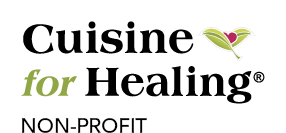
Well- here we are- full on HoHoHo! The holidays are in full swing- have you checked your stress meter?
Pop quiz- do you know the number one contributor to disease in our world today? Smoking? Obesity? Poor diet?
No- STRESS! Believe it or not stress is the number one most significant factor in illness today.
Here is what Boston.com has to say about it:
It’s a delicate line we walk between good health and bad. One day we’re feeling fine, and the next, a busy work week or family emergency can send us over the edge into illness. What’s the culprit? Stress.
It’s the brain’s response to any demand, but most often it’s change or demand in our routines. When it’s short-term, perhaps we get a cold. When it’s long-term, it can have a much more serious impact on our greater wellbeing, which in turn, stresses us out even more.
Almost half of our most stressful experiences are related to our health, according to a new NPR/Robert Wood Johnson Foundation/Harvard School of Public Health survey released today. “The Burden of Stress in America’’ survey analyzed responses from more than 2,500 adults over 18 years old from March to April 2014. Those who identified with being in poor health were much more likely to report having had a great deal of stress in the past month.
The survey also collected data from respondents on how stressful they found particular daily tasks. Participants reported that tasks such as juggling family schedules, hearing about what politicians and the government is doing, following the news, doing chores like cooking and cleaning, running errands, car problems, commuting, household repairs, losing keys or cell phone, as well as using social media were stressful. Which is great news, since this simply sounds like daily life for most of us.
As a result of all of this stress, respondents were most likely cut back on sleep (70 percent), eat less (44 percent), and exercise less (43 percent). The problem is, these are exactly the tasks most likely to reduce your stress! Cutting back on any of these items is also the recipe for poor health, which feeds, once again, into the stressful chicken-and-egg scenario: Worse health causes worse stress, which causes worse health. Here is why:
Stress Affects Health
When an individual experiences stress, certain hormones are released, such as catecholamines and cortisol, the primary stress hormone (NIH, 2011).
- Long-term activation of the stress-response system can disrupt almost all of the body’s processes and increase the risk for numerous health problems (Mayo Clinic Organization, 2011; NIH, 2011).
- Allostatic load is the cumulative biological burden exacted on the body through daily adaptation to physical and emotional stress. It is considered to be a risk factor for several diseases — coronary vascular disease, obesity, diabetes, depression, cognitive impairment and both inflammatory and autoimmune disorders (Djuric et al, 2010).
- Stress may prematurely age the immune system and could enhance the risk of illness as well as age-related diseases (Djuric et al, 2010; Geronimus et al, 2010).
How can we alleviate stress? Here is what The Center for Mind-Body Medicine suggests:
Eat Well!
According to Dr. Mark Hyman, eating whole, real foods restores balance and reduces the effects of stress on your body. Replacing harmful substances such as caffeine, alcohol, and refined sugars, with clean proteins, fruits, vegetables, and healthy fats helps regulate your hormone levels, including stress hormones. Food As Medicine Education Director Kathie Swift, MS, RDN, LDN, FAND, EBQ cites the connection between the gut and brain in relieving stress. The gut and brain are constantly sending signals to each other, so by keeping your microbiota (the bacteria in your gut) healthy, your brain feels less stressed.
Shaking & Dancing
The quickest way to relieve stress is to release endorphins through exercise. An easy way to do this is through shaking and dancing, a form of expressive meditation that loosens your joints as well as clears the mind. It’s one of our favorite techniques to teach in conflict and disaster areas, such as Haiti. Start by standing with your feet shoulder-width apart, knees slightly bent, shoulders relaxed, and shake your whole body for a few minutes (we recommend 7-8 minutes). Then, stop for a minute or two and pay attention to your breathing and physical sensations. Finally, turn on fast music – anything that gets you energized, and allow the music to move you. Don’t feel the need to follow any specific dance moves, just do whatever feels good for you in the moment (it might help to close your eyes). Dance for about 5 minutes, or until you feel satisfied.
Get a good night’s sleep
Sleep and stress tend to cause a vicious cycle – if you’re stressed, then you can’t sleep, which makes you ill-prepared to handle the stressors of the next day, leading to more stress. To relieve stress before bed, try some relaxation techniques (see below) and disconnect from technology as much as possible an hour before bedtime. To ensure the proper amount of rest (7-8 hours is recommended), set an alarm reminding you to go to bed.
Guided Imagery
The body responds in essentially the same way to made-up imagery as it does to real experiences. Positive, relaxing images can be an effective tool for relieving stress. Try it for yourself with this Guided Imagery podcast from our Founder and Director Dr. James Gordon, or check out Dr. Gordon’s book Unstuck: Your Guide to the Seven-Stage Journey Out of Depression for dozens more techniques, including scripts for guided imagery exercises.
B R E A T H E
We do it all day, every day, and yet we often forget the healing powers of deep breathing. By slowing down your heart rate and lowering blood pressure, breathing deeply relieves stress. Our Soft Belly meditation is our go-to for relieving stress, but any form of slow, deep breathing can help you relax and stay calm.
We each owe it to ourselves to nourish and care for this human body we are stewards of.
As one wise yogi said ” Take care of yourself- if you don’t where will you live?”
Happy Healthy Eating! Dana
https://www.boston.com/culture/health/2014/07/08/the-vicious-cycle-of-stress-and-poor-health
https://www.apa.org/topics/health-disparities/fact-sheet-stress.aspx
https://cmbm.org/blog/5-ways-relieve-stress/









